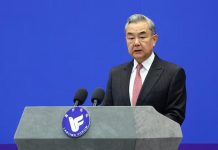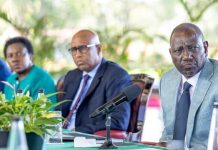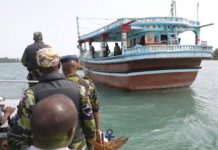Africa-Press – Kenya. East Africa Community governors of central banks are set to meet to assess the regions’ economic scorecard and avenues for investments.
The chair of the EAC Monetary Affairs Committee James Alic Garang, who is the Bank of South Sudan governor said that single currency for the EA region will feature prominently in the deliberations.
This body meets annually, usually around April or March, to take stock of the progress and challenges along the path of establishing monetary union.
This coming at a time that the East African Community member-states are in a race to harmonise critical policies and putt in place the institutions to attain a single currency as outlined in the EAC Monetary Union Protocol.
“Now we are in the third stage, and that is establishment of monetary union. It is the monetary union that will result in a single currency for the region. So, because of that, a roadmap was established, and a number of criteria are expected to be met by everyone in the union,” said Garang.
This year the MAC meeting will be held in Juba and will also take stock of the progress that has been made since last year, in the convergence criteria, good practices, conventions and reforms that are expected.
The session will also look into the process on the status of payment systems, the progress towards ensuring financial inclusion, the state of the banking sector or banking certification program, and the status of training and Technical Assistance Agreements (TAAs) among other things.
As the regions financial policy makers work towards more realistic macro-economic convergence targets, the three other prerequisites to the monetary union protocol will have to be realised.
The first one – the full realisation of the first two pillars, that is customs union and common market protocols which EAC says are being addressed.
The protocol also requires the establishment of key institutions, which include the East Africa Monetary Institute, East Africa Statistics Bureau, East Africa Financial Services Commission, and the East Africa Surveillance, Compliance, and Enforcement Commission.
The last precondition for the monetary union protocol is the harmonisation of monetary and fiscal policies across the partner States of the EAC.
The EAC common market – consists of eight countries, Burundi, Democratic Republic of Congo, Kenya, Rwanda, South Sudan, Tanzania, Uganda and the latest entrant Somalia.
On investments, Garang said Infrastructure development, especially in roads, education, and public health, is recognized as crucial for economic growth.
However, government investments in these areas have been modest, prompting a reliance on support from the development community to bridge the gap.
In South Sudan for instance, he said that to address these challenges, the government has embarked on initiatives to expand its tax base and explore alternative revenue sources.
Key strategies include enhancing non-oil revenue collection through measures like electronic cargo tracking and tax system automation.
Efforts to tap into the country’s mineral wealth, particularly gold, are also underway, although progress in this area remains a work in progress.
Additionally, sectors like fishing, timber, and agriculture have been identified as potential areas for growth and revenue generation.
For More News And Analysis About Kenya Follow Africa-Press






